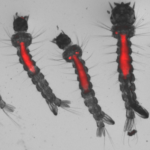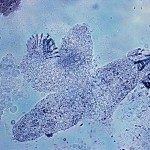Présentation
Malaria vectors can only transmit malaria after getting infected when biting infectious people. The mosquito microbiota protects its host against infection by parasites and negatively affects the mosquito fitness, impacting the chance of transmission. So far, functional studies on the microbiota have been performed on laboratory mosquitoes whose microbiota composition does not reflect that of field mosquitoes. Alternatively, research based on field mosquitoes is descriptive or may at best identify correlations. Here, we will develop a model of laboratory mosquitoes to study the effect of the microbiota composition on malaria transmission in French Guiana. We will study the microbiota composition in wild Amazonian malaria vectors and reproduce simplified field types of microbiota (enterotypes) into laboratory-reared mosquitoes. Using these new models, we will study whether some enterotypes block or promote transmission by affecting the mosquito permissiveness to infection and fitness.







